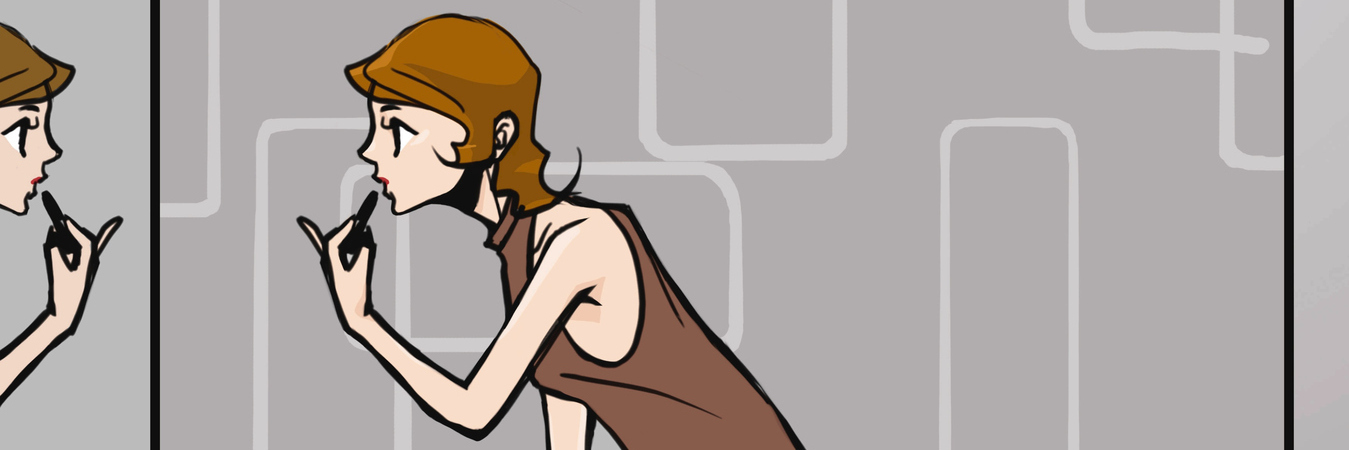I’ve been wearing makeup since I was 11, learning how to apply liquid eyeliner (badly!) from magazines, using bright pink eyeshadow, and comparing lipsticks with my Nan. As a teenager, I never went out without a full face of makeup. For me, that meant foundation, concealer, powder, eyeliner, and mascara, at the very least.
- What is Fibromyalgia?
- What Are Common Fibromyalgia Symptoms?
Since developing fibromyalgia, I’ve found myself overcome with fatigue at times, struggling to drag myself out of bed in the mornings. So why do I still take the time to apply makeup? Surely I would relish an extra 20 minutes in bed, and go bare-faced?
Actually, my relationship with makeup is a complicated one. As a feminist, I don’t believe anyone should feel they have to wear makeup. Women shouldn’t have to subscribe to society’s beauty ideals. But I still wear makeup on an almost daily basis, spending 20 minutes or so each morning getting ready. One way of explaining it is that getting ready is part of my morning routine. Those of us with a chronic illness know how important it can be to have a routine. My GP always stresses the importance of getting up around the same time every day, including weekends (which I don’t always do!), as well as having a healthy bedtime routine.
I get up, use the bathroom, cleanse my face, apply my makeup, get dressed, do my hair, then have my breakfast and leave for work. It’s a constant and comfortable regime, one that, if interrupted, could get thrown off completely. I also have obsessive compulsive disorder (OCD), which is characterized by obsessive habits, but not limited to what the media usually portrays – hand-washing, organizing, avoiding germs. It soothes my OCD to have a routine, to do things in a set order. It’s not logical, but it’s become a habit, and the routine isn’t damaging.
Makeup also helps me to put on a mask, as they say. “You don’t look sick” is a phrase we’ve all heard, those of us with invisible illnesses, and one I’m happy to subscribe to. I don’t want to look sick. I want to look “normal” (whatever that may be). I want to look my best, and that, to me, includes wearing makeup. Sometimes I’ll leave out the eye makeup – I sometimes have my lashes tinted so I can forego mascara completely! – and only spend a few minutes on it, especially if I haven’t slept well the night before, or if I’m in considerable pain. I hold the view that how I do my makeup is completely up to me, and the choice to wear it or not is also mine alone.
My makeup habits have evolved as I’ve gotten older. I’ve found better products – and have more money to spend than when I was a teenager! – and better methods of applying them. I swear by the Real Techniques miracle sponge to apply foundation, and I actually wash my brushes! My style has also evolved – now I opt for a more natural, “’no makeup’ makeup” look, rather than anything dramatic. I’m envious of the women (and men) who are so skilled with makeup they can draw sunsets on their eyelids. That’s some impressive artwork. I enjoy putting makeup on. I love trying out new lipsticks, developing my skills — but I still can’t do winged eyeliner, no matter how much I practice.
Last year, I got married to my best friend. We didn’t have a lot of money, so we decided to have a really small ceremony, with just our closest friends and family. I bought a dress from Tesco for £30, had my hair curled, and decided to do my own makeup. I’d started on amitriptyline only a couple of months before, and I was determined to “get better.” To me, that meant doing more things I love – including makeup. I almost studied hair and beauty at college, but decided to pursue law instead. Sometimes I wish I’d (somehow) studied both, and consider doing a course at some point in the future. I spent a lot of time on YouTube, watching these talented people create amazing looks, and did my best to replicate what I learned. The result was pretty good, if I say so myself, and I learned some brilliant tricks of the trade that I now use every day.
While I support and encourage women to be themselves, and not wear makeup if they don’t want to, I also support those of us who do want to wear it, who use it as a shield, and a way of making ourselves feel more ready to face the world. Living with a chronic illness is hard enough, but nobody ever said we have to go through it without wearing lipstick.
We want to hear your story. Become a Mighty contributor here.
Thinkstock photo by DAJ

